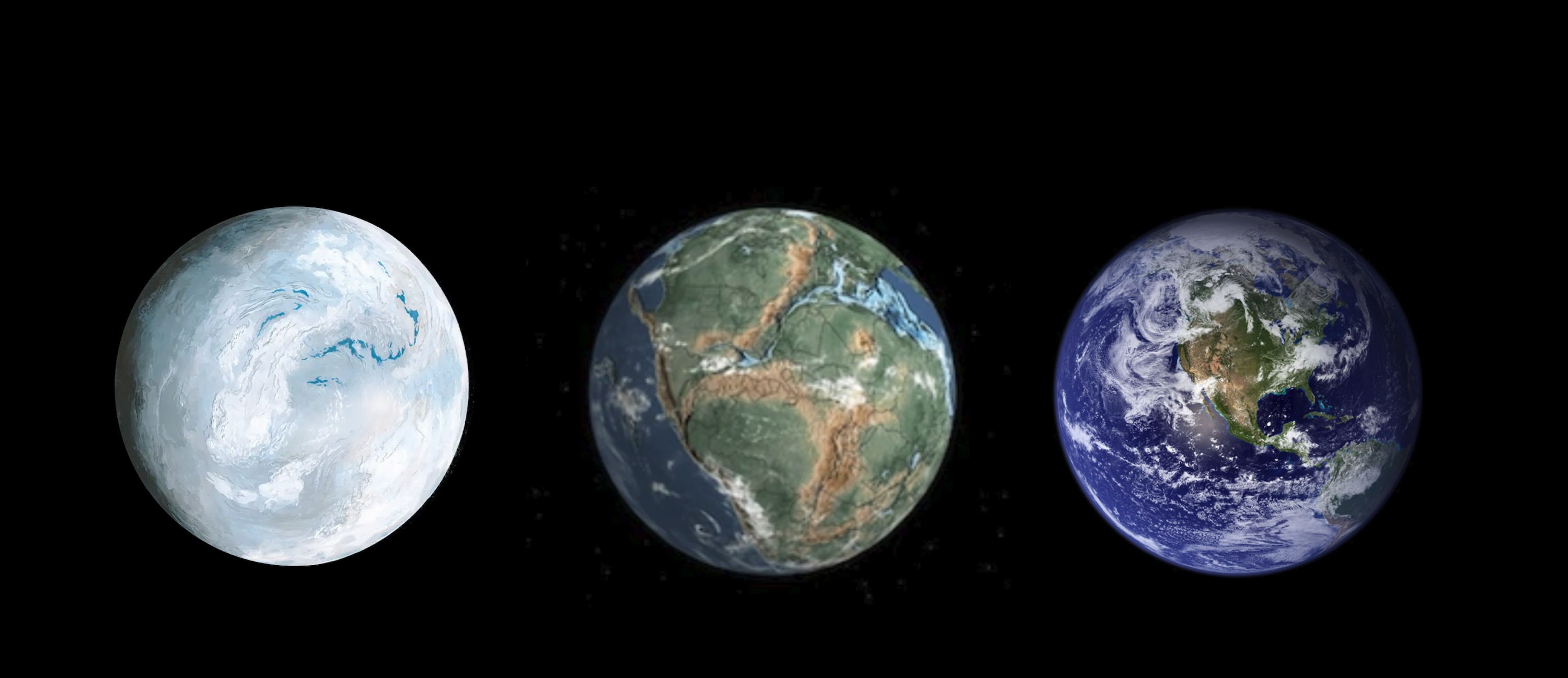I’d rather have questions that can’t be answered than answers that can’t be questioned.
Summary
What drives earth’s climate? What role does the sun play? What influence do humans have? What will the climate of the future be? This 12-week class will take students through an in-depth exploration of the earth’s climate systems, learning what we know and what we don’t know about climate. Instructor David Siegel will help you understand what’s really going on at a high level, and with as much detail as you want to learn.
Who this is for
- People who really want to understand how the earth's complex climate system works.
- People who are willing to do reading and homework.
- People who have questions and want to understand what's really going on.
- Educators, students, and politicians who need a firm grasp of the fundamentals.
- Influencers, journalists, policy people, government officials, media people, researchers.
- People in companies who need to understand climate.
- People in NGOs who want to learn the truth, not the fundraising hype.
- People who want to learn how to communicate more accurately about climate.
Level
This class is not for beginners. You should already have at least ten hours looking into and trying to understand climate science (ideally at ClimateCurious.com). If you consider yourself an intermediate or open-minded expert who can always learn more, this class will be very rewarding. Those who just want to listen and learn in the class can participate for the first hour, while the last 30 minutes will be more aimed at people asking advanced questions.
Text book
You don’t need to buy the text book for this class if you just want to participate, ask questions, and learn. But if you want a deep understanding of climate and you’re willing to do homework, you’ll want to purchase Climate of the Past, Present and Future: A scientific debate, by Javier Vinos
Format
12 classes, 90 minutes each, plenty of time for Q&A
There are two ways to take this class: you can either watch, listen, participate, ask questions and learn in the first hour and then leave, or you can work at a deeper level, doing homework assignments and diving more into the details in the last 30 minutes. Either way is fine. You’re welcome to mix and match. The first hour will always be the easier material.
What you won't learn
Politics, energy, trickery, cartoons, stories from the Guardian
What you will learn
While based on the textbook, the syllabus for this class is experimental and will evolve to cater to the needs of the students. Here is a rough outline:
- The history of carbon dioxide
- About heat
- The climates of Venus and Mars
- Orbital mechanics
- Paleoclimates, glacials, and interglacials
- How the greenhouse effect works
- Drivers of the earth’s climate - radiative vs thermal models
- The big ocean oscillations
- Correlation is not causation
- Arctic amplification
- The winter gatekeeper hypothesis
- Meridional heat transport
- Downwelling longwave radiation
- Diminishing effectiveness of greenhouse gases
- Pressure systems
- Feedback
- Models
- The future climate
- Summary and discussion
Those who want a deeper dive can expect some reading or video homework between sessions.
The introductory video below was published on 19 February 2024, and will give you an idea of the course content:
Dates and times
19 March
The first session of the course will begin on 19 March 2024 at 7pm GMT. We will host the course on Zoom.
Keep in Mind ...
This class won't help you convince anyone of anything. People who make up their minds without evidence and reason will not change when shown evidence and reason. This should purely be for your own education and entertainment. All classes will be recorded for later review.
About Your Instructor
David Siegel
David Siegel is an autodidact and a lifelong learner. He wrote his first (and only book) on climate in 1991, and that book said that CO2 was going to fry everyone and we had to reduce population if we were going to survive. After noticing that humanity was doing rather well, he took a year off in 2015 and dove headfirst into the wacky world of climate science. Since then, he has spent over 6,000 hours reading papers, bugging scientists, making videos, and writing hundreds of blog posts, and getting kicked out of LinkedIn and medium.com for his heretical scientific views. He curates a list of 200 peer-reviewed scientific papers that do not confirm the IPCC’s preferred narrative on climate. He has spent hundreds of hours with the book for this class and many months badgering its author to learn more. Now, he has developed a master class that he hopes isn’t too wrong and wants to help others be less wrong as well.
He is also a champion of individual human rights and privacy, free markets, and hopes to play a small role in the demise of the UN, the WEF, the World Bank, and the ESG movement. He welcomes all scientific conversations that don’t involve name calling, Guardian articles, or appeals to authority.
Course Price
Book your place today to take advantage of early bird pricing!
Full Price
160£
Early Bird Price
120£
Early Bird tickets are available until 10 March 2024
BUY NOW
